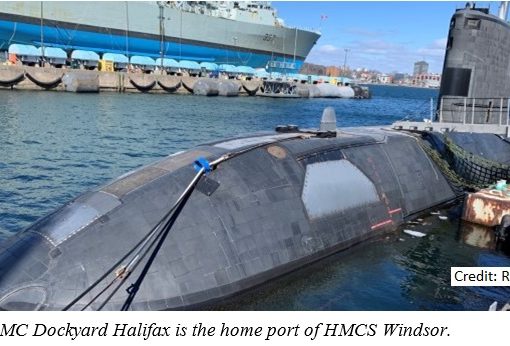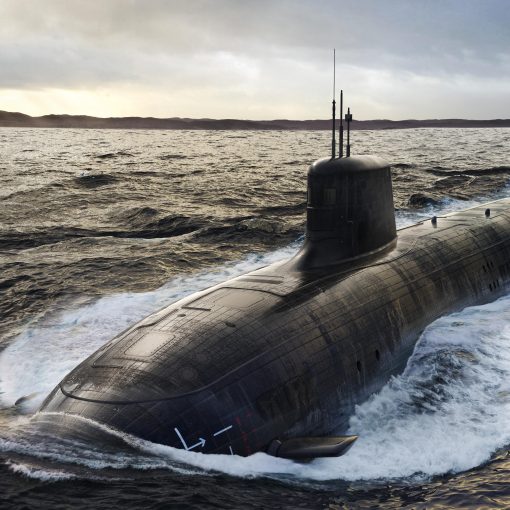By Dan Middlemiss, 28 September 2025
I was dismayed when I read Vice-Admiral Topshee’s recent interview in which he noted that the government was considering a direct government-to-government contracting process for the Canadian Patrol Submarine Project (CPSP).[1]
Admiral Topshee stated that a “strategic partnership” with either the South Korean or German government might bring more benefits to Canada as a whole than by simply dealing with either of the two contending bidders for the CPSP deal.
Topshee provided a couple of examples of such ‘benefits’:
First, "What if we want to insist on German and Norwegian investment in a certain technology? What if there's some sort of LNG (liquefied natural gas) deal as part of this?";
Second, Topshee suggested the prospect of injecting more Canadian content into later batches of subs: Maybe, "for five through eight, we'd really like to see the incorporation of Canadian technology, not only into the design for our submarines but also in the ones for Norway and Germany, or South Korea," he said. "Is that something those countries would be willing to consider?" And for the final four, Canada might be able to arrange a significant further "Canadianization of the boats where Canadian companies play an even greater role in the building of these subs," the commander said.”
These comments led me to think that some PMO staffer had sat the Admiral down to explain the political facts of life to him. Obviously, procuring submarines had little to do with getting badly needed boats to the Navy, but rather everything to do with domestic economic and political considerations.
Soon after, I was even more flabbergasted to learn that Admiral Topshee had broached the idea that the government might decide to split the sub procurement between the two bidding companies.[2] Why, I wondered, would Ottawa embrace a split contract – two different fleets, training, and supply and maintenance chains – when the government had repeatedly denigrated the notion of a split fleet of jet fighters?
The immediate and vociferous denunciation of the split fleet notion by several experts [3] immediately led PM Carney himself to seemingly quash the idea of a split fleet procurement.[4]
In retrospect, I now think that the Admiral knew exactly what he was doing when he went public with these possibilities – he was trying spike the guns of those procurement bean-counters in Ottawa who like to believe that political and economic expediency should trump military necessity in Canada’s major defence procurements. Note that the Admiral was very careful to stress that, ultimately, it would be up to the government to decide, but it also appears that he was trying to sideline some possibilities that had been bandied about in the procurement bureaucracy for some time. Well done, sir!
One caveat: winning a battle of bureaucratic procurement gamesmanship comes with a big potential downside. Ultimately, the bean-counters and politicos control the procurement purse strings, so there may be a ‘cost’ in terms of delays, reduced numbers, and yet more tampering in the longer term.
Notes
1. Steven Chase, “Canada weighing direct government contract for sub purchase, head of navy says,” The Globe and Mail, 19 September 2025.
2. Kyle Duggan, “Navy commander says Canada could end up with subs from two different suppliers,” www.ctvnews.ca, Canadian Press, 23 September 2023.
3. Kyle Duggan, “Splitting Canada’s submarine fleet could endanger procurement project, experts warn,” www.thecanadianpressnews.ca, 23 September 2025.
4. Kyle Duggan, “Canada won’t split its submarine contract between suppliers: Carney,” Canadian Press, 23 September 2025.
A photo of a KSS-III Batch I on the left and a rendering of the Type 212 CD on the right. Credit: Republic of Korea Navy, ThyssenKrupp Marine Systems






2 thoughts on “Well Played, Admiral!”
Yes, everyone agrees a split submarine fleet would be a maintenance, training, and supply nightmare, and tying a submarine contract to LNG deals or heavy ‘Canadianization’ clauses is a sure way to drive cost and schedule risk. Those points stand on their own merits and don’t need a secret plan from NDHQ to get them across.
But to paint VAdm Topshee as some sort of Ottawa strategist is a stretch. He’s due to be relieved in short order, and his mandate is to run the RCN, not to shape trade policy or play procurement politics. Canada’s system is clear: Cabinet sets the policy and carries the political accountability, the military provides professional advice and executes.
From that angle, his recent comments about government to government deals and a possible two-supplier buy look much more like loose, end-of-tour speculation than a carefully laid trap. The fact that the political side quickly swatted down the split fleet notion is just as easily explained by basic common sense and longstanding procurement lessons as by any ‘spike the guns’ tactic.
The outcome, no split fleet and more caution on industrial side deals may be fortunate from an operational point of view, but it doesn’t prove the Admiral is running a quiet campaign. More likely it’s a case of Ottawa being Ottawa and the Navy benefiting from a happy coincidence rather than a masterstroke of naval statecraft.
Simple question: prior to the reports of VAdm Topshee’s September 2025 interview, had anyone else outside of government circles mentioned that there was some consideration being given to the possibility of a submarine split fleet contract?
Simple answer: no! (including folks possibly in the know in this Forum).
And despite some fevered imaginings of what I actually wrote in this post, I did not say or imply any of the following: that Topshee was setting ‘a carefully laid trap’; that his revelations were part of a ‘secret plan’; that he ‘is running a quiet campaign’; or, that his action represented some sort of ‘masterstroke of naval statecraft’.
I was simply giving the Admiral credit for seizing a tactical opportunity to reveal something about what was going on with this project behind the scenes. And he did this adroitly, in my view, all the while staying within his lane as a military officer.
There are some who believe that Canadians are not entitled to anything but bare bones information about what the government intends to do regarding defence, but I do give the Admiral credit for occasionally lifting the veil in an illuminating way. (For another even more forthright example, check the Admiral’s searing thoughts on mating the Cyclone helicopter to the future Continental Defence Corvette.)
Nothing Strangelovian at all.